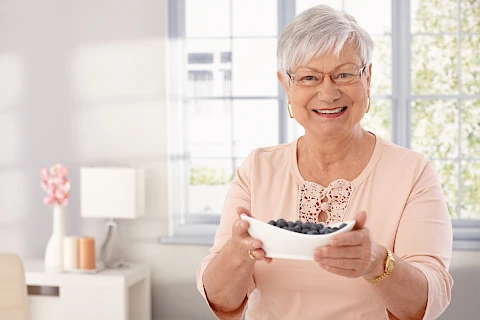
Living with Parkinson's disease can be challenging for anyone. This progressive neurological disorder often leads to motor symptoms like tremors and rigidity, along with non-motor symptoms that can affect mood, sleep, and digestion. While there is no cure for Parkinson's, proper nutrition can be beneficial in managing its symptoms and improving quality of life. We'll discuss practical nutrition tips that can help seniors living with Parkinson's and their caregivers.
Parkinson's and Nutrition
Parkinson's disease impacts the body in various ways, including dietary needs. The symptoms can make eating and processing food more difficult. However, a carefully considered diet can help alleviate some of the complications associated with Parkinson's. A balanced nutritional plan can promote brain health, improve digestive function, and support overall well-being.
Foods to Incorporate
Incorporating certain nutrient-rich foods into the diet is essential for managing Parkinson's symptoms. Antioxidant-rich foods are crucial, as they combat oxidative stress, which can worsen Parkinson's symptoms. Fruits and vegetables like berries and leafy greens are excellent choices.
Omega-3 fatty acids are vital for brain health and may slow the progression of Parkinson's. Adding omega-3-rich fish such as salmon or plant-based sources like flaxseeds and walnuts can benefit cognitive functions. Seniors with Parkinson's often face digestive issues, making fiber-rich foods an essential component of their diet. Whole grains and legumes can help maintain digestive health and regularity, frequently disrupted by the condition.
Foods to Avoid
While some foods can help manage symptoms, others might worsen them. Processed foods and high sugar intake can negatively impact overall health, leading to weight gain and increased risk of chronic diseases. Food choices are best limited to a Parkinson 's-friendly diet. Saturated fats and cholesterol may affect brain health, so consume in moderation. Examples include fatty cuts of meat and high-fat dairy products. Excessive protein intake can interfere with the efficacy of Parkinson's medications. You must maintain a balanced protein intake in consultation with a healthcare provider to ensure that nutrition doesn't conflict with medication efficacy.
Tips for Maintaining a Healthy Diet
Seniors with Parkinson's may face additional challenges in eating, but there are strategies to overcome these. For tremors, using utensils with special grips can make eating easier. Opt for softer foods and small, manageable bites to address swallowing difficulties. Meal planning and preparation can make maintaining a nutritious diet simpler. Preparing meals in advance and focusing on simple yet healthy dishes can ensure consistent, balanced nutrition. Stay hydrated, as dehydration can aggravate Parkinson's symptoms. Seniors should aim for regular fluid intake throughout the day, prioritizing water, herbal teas, and other non-caffeinated beverages.
Senior Helpers Frisco Can Help With Meal Planning and Prep
Navigating Parkinson's disease is challenging for seniors and their caregivers, but smart nutrition choices can make a significant difference. Incorporating antioxidant-rich foods, omega-3s, and fiber into daily meals while avoiding processed foods, saturated fats, and excessive protein can help manage symptoms effectively. You must work closely with healthcare providers to tailor a nutrition plan that suits individual needs.
At Senior Helpers Frisco, we offer support and care for seniors with Parkinson's in Frisco, Lewisville, Little Elm, Lake Dallas, and Aubrey. Our experienced team is here to assist you with personalized care plans that cover nutrition and beyond. Contact us to learn more about how we can help you or your loved one manage Parkinson's with confidence and support.